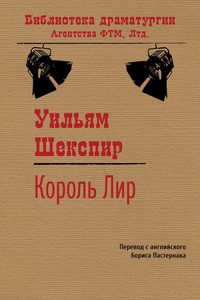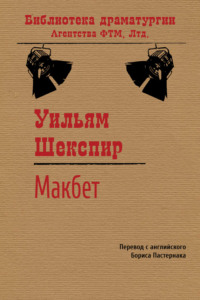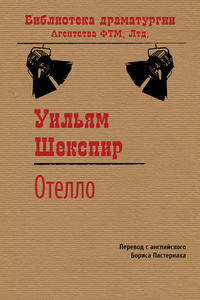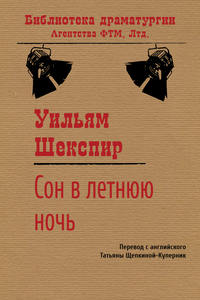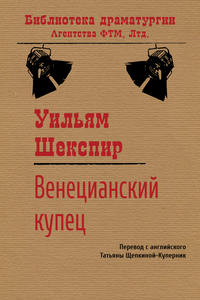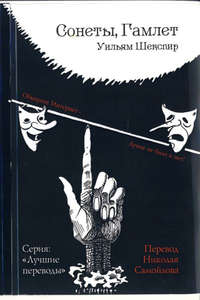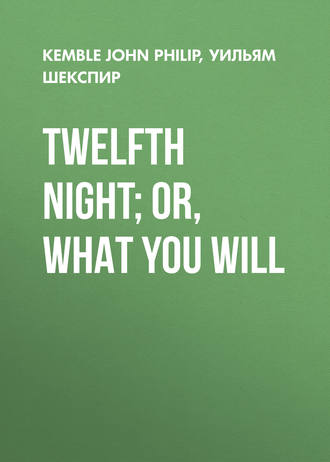
Twelfth Night; or, What You Will
Sir And. Or I either?
Sir To. Why, thou hast put him in such a dream, that when the image of it leaves him, he must run mad.
Mar. Nay, but say true; does it work upon him?
Sir To. Like aqua-vitæ with a midwife.
Mar. If you will then see the fruits of the sport, mark his first approach before my lady: he will come to her in yellow stockings, and 'tis a colour she abhors; and cross-gartered, a fashion she detests; and he will smile upon her, which will now be so unsuitable to her disposition, being addicted to a melancholy as she is, that it cannot but turn him into a notable contempt: if you will see it, follow me.
[Exit Maria.
Sir To. To the gates of Tartar, thou most excellent devil of wit.
Sir And. I'll make one too.
Fab. And I.
Omnes. Huzza! huzza! huzza!
[Exeunt.
SCENE II
A public Square.
Enter Sebastian and Antonio.
Seb. I would not, by my will, have troubled you;But, since you make your pleasure of your pains,I will no further chide you.Ant. I could not stay behind you; my desire,More sharp than filed steel, did spur me forth;I fear'd besides what might befall your travel,Being skilless in these parts; which to a stranger,Unguided, and unfriended, often proveRough and unhospitable: My willing love,The rather by these arguments of doubt,Set forth in your pursuit.Seb. My kind Antonio,I can no other answer make, but thanks,And thanks, and ever thanks. – What is to do?Shall we go see the reliques of this town?Ant. To-morrow, sir; best, first, go see your lodging.Seb. I am not weary, and 'tis long to night;I pray you, let us satisfy our eyesWith the memorials, and the things of fame,That do renown this city.Ant. 'Would, you'd pardon me;I do not without danger walk these streets:Once, in a sea-fight, 'gainst Orsino's gallies,I did some service; of such note indeed,That were I ta'en here, it would scarce be answered.Seb. Do not then walk too open.Ant. It doth not fit me. – Hold, sir, here's my purse;In the south suburbs, at the Elephant,Is best to lodge: I will bespeak our diet,Whiles you beguile the time, and feed your knowledge,With viewing of the town; there shall you have me.Seb. Why I your purse?Ant. Haply, your eye shall light upon some toyYou have desire to purchase; and your store,I think, is not for idle markets, sir.Seb. I'll be your purse-bearer, and leave you for an hour.Ant. To the Elephant.Seb. I do remember.[Exeunt.
SCENE III
Olivia's Garden.
Enter Clown, playing on a Tabor, and Viola.
Vio. Save thee, friend, and thy music: Dost thou live by thy tabor?
Clo. No, sir, I live by the church.
Vio. Art thou a churchman?
Clo. No such matter, sir: I do live by the church; for I do live at my house, and my house doth stand by the church.
Vio. Art not thou the Lady Olivia's fool?
Clo. No, indeed, sir; the Lady Olivia has no folly: she will keep no fool, sir, till she be married; and fools are as like husbands, as pilchards are to herrings, the husband's the bigger; I am, indeed, not her fool, but her corrupter of words.
Vio. I saw thee late at the Duke Orsino's.
Clo. Foolery, sir, does walk about the orb, like the sun; it shines every where. I would be sorry, sir, but the fool should be as oft with your master, as with my mistress: I think, I saw your wisdom there.
Vio. Nay, an thou pass upon me, I'll no more with thee. Hold, there's expences for thee.
[Gives him money.
Clo. Now, Jove, in his next commodity of hair, send thee a beard!
Vio. By my troth, I'll tell thee; I am almost sick for one. – Is thy lady within?
Clo. Would not a pair of these have bred, sir?
Vio. Yes, being kept together, and put to use.
Clo. I would play Lord Pandarus of Phrygia, sir, to bring a Cressida to this Troilus.
Vio. I understand you, sir: [Gives him more money.] 'tis well begged.
Clo. My lady is within, sir. I will construe to them whence you came: who you are, and what you would, are out of my welkin: I might say, element; but the word is over-worn.
[Exit Clown.
Vio. This fellow's wise enough to play the fool;And to do that well, craves a kind of wit:He must observe their mood on whom he jests,The quality of persons, and the time;And, like the haggard, check at every featherThat comes before his eye. This is a practice,As full of labour as a wise man's art.Enter Sir Toby, and Sir Andrew.
Sir To. Save you, gentleman.
Vio. And you, sir.
Sir To. My niece is desirous you should enter, if your trade be to her.
Vio. I am bound to your niece, sir: I mean, she is the list of my voyage.
Sir To. Taste your legs, sir, put them to motion.
Vio. My legs do better understand me, sir, than I understand what you mean by bidding me taste my legs.
Sir To. I mean, – to go, sir, to enter.
Vio. I will answer you with gait and entrance: But we are prevented.
Enter Olivia.
Most excellent accomplished lady, the heavens rain odours on you!
Sir And. That youth's a rare courtier! —Rain odours!– well.
Vio. My matter hath no voice, lady, but to your own most pregnant and vouchsafed ear.
Sir And. Odours, pregnant, and vouchsafed! – I'll get 'em all three ready.
Oli. Leave me to my hearing.
Sir And. Odours – pregnant – vouchsafed.
[Exeunt Sir Toby and Sir Andrew.
Oli. Give me your hand, sir.Vio. My duty, madam, and most humble service.Oli. What is your name?Vio. Cesario is your servant's name, fair princess.Oli. My servant, sir! 'Twas never merry world,Since lowly feigning was called compliment:You are servant to the Duke Orsino, youth.Vio. And he is yours, and his must needs be yours;Your servant's servant is your servant, madam.Oli. For him, I think not on him: for his thoughts,'Would they were blanks, rather than filled with me!Vio. Madam, I come to whet your gentle thoughts on his behalf: —Oli. O, by your leave, I pray you;I bade you never speak again of him:But, would you undertake another suit,I had rather hear you to solicit that,Than music from the spheres.Vio. Dear lady, —Oli. Give me leave, I beseech you: I did send,After the last enchantment you did here,A ring in chase of you; so did I abuseMyself, my servant, and, I fear me, you:Under your hard construction must I sit,To force that on you, in a shameful cunning,Which you knew none of yours: What might you think?Have you not set mine honour at the stake,And baited it with all the unmuzzled thoughtsThat tyrannous heart can think? To one of your receivingEnough is shown; a cyprus, not a bosom,Hides my poor heart: So let me hear you speak.Vio. I pity you.Oli. That's a degree to love.Vio. No, not a grise; for 'tis a vulgar proof,That very oft we pity enemies.Oli. Why, then, methinks, 'tis time to smile again:O world, how apt the poor are to be proud![Clock strikes.
The clock upbraids me with the waste of time. —Be not afraid, good youth, I will not have you:And yet, when wit and youth is come to harvest,Your wife is like to reap a proper man:There lies your way, due west.Vio. Then westward-hoe:Grace, and good disposition 'tend your ladyship!You'll nothing, madam, to my lord by me?Oli. Stay:I pr'ythee, tell me, what thou think'st of me.Vio. That you do think, you are not what you are.Oli. If I think so, I think the same of you.Vio. Then think you right; I am not what I am.Oli. I would, you were as I would have you be!Vio. Would it be better, madam, than I am,I wish it might; for now I am your fool.Oli. O, what a deal of scorn looks beautifulIn the contempt and anger of his lip!Cesario, by the roses of the spring,By maidhood, honour, truth, and every thing,I love thee so, that, maugre all thy pride,Nor wit, nor reason, can my passion hide.Vio. By innocence, I swear, and by my youth.I have one heart, one bosom, and one truth,And that no woman has; nor never noneShall mistress be of it, save I alone.And so adieu, good madam; never moreWill I my master's tears to you deplore.Oli. Yet come again: for thou, perhaps, may'st moveThat heart, which now abhors, to like his love.[Exeunt.
SCENE IV
A Room in Olivia's House.
Enter Sir Andrew, Fabian, and Sir Toby.
Sir And. No, faith, I'll not stay a jot longer.
Sir To. Thy reason, dear venom, give thy reason.
Fab. You must needs yield your reason, Sir Andrew.
Sir And. Marry, I saw your niece do more favours to the Count's serving man, than ever she bestowed upon me; I saw't this moment in the garden.
Sir To. Did she see thee the while, old boy? tell me that.
Sir And. As plain as I see you now.
Fab. This was a great argument of love in her toward you.
Sir And. 'Slight! will you make an ass o' me?
Fab. I will prove it legitimate, sir, upon the oaths of judgment and reason.
Sir To. And they have been grand jury-men, since before Noah was a sailor.
Fab. She did show favour to the youth in your sight, only to exasperate you, to awake your dormouse valour, to put fire in your heart, and brimstone in your liver: you should then have accosted her; and with some excellent jests, fire-new from the mint, you should have bang'd the youth into dumbness. This was look'd for at your hand, and this was baulk'd: the double gilt of this opportunity you let time wash off, and you are now sailed into the north of my lady's opinion: where you will hang like an icicle on a Dutchman's beard, unless you do redeem it by some laudable attempt, either of valour or policy.
Sir And. An it be any way, it must be with valour; for policy I hate.
Sir To. Why, then, build me thy fortunes upon the basis of valour. Challenge me the Count's youth to fight with him; hurt him in eleven places; my niece shall take note of it: and assure thyself, there is no love-broker in the world can more prevail in man's commendation with woman, than report of valour.
Fab. There is no way but this, Sir Andrew.
Sir And. Will either of you bear me a challenge to him?
Sir To. Go write it in a martial hand; be curst and brief; it is no matter how witty, so it be eloquent, and full of invention: taunt him with the license of ink: if thou thou'st him some thrice, it shall not be amiss; and as many lies as will lie in thy sheet of paper; although the sheet were big enough for the bed of Ware in England, set 'em down; go, about it. Let there be gall enough in thy ink; though thou write with a goose-pen, no matter: About it.
Sir And. Where shall I find you?
Sir To. We'll call thee at the cubiculo: Go.
[Exit Sir Andrew.
Fab. This is a dear manakin to you, Sir Toby.
Sir To. I have been dear to him, lad; some two thousand strong, or so.
Fab. We shall have a rare letter from him: but you'll not deliver it?
Sir To. Never trust me then; and by all means stir on the youth to an answer. I think, oxen and wainropes cannot hale them together. For Andrew, if he were opened, and you find so much blood in his liver as will clog the foot of a flea, I'll eat the rest of the anatomy.
Fab. And his opposite, the youth, bears in his visage no great presage of cruelty.
Sir To. Look, where the youngest wren of nine comes.
Enter Maria.
Mar. If you desire the spleen, and will laugh yourselves into stitches, follow me: yon gull Malvolio is turned heathen, a very renegado; for there is no Christian, that means to be saved by believing rightly, can ever believe such impossible passages of grossness. He's in yellow stockings.
Sir To. And cross-gartered?
Mar. Most villainously; like a pedant that keeps a school i' the church. – I have dogg'd him, like his murderer: He does obey every point of the letter that I dropped to betray him. He does smile his face into more lines, than are in a map: you have not seen such a thing as 'tis.
Sir To. Come, bring us, bring us where he is.
[Exeunt.
ACT THE FOURTH
SCENE 1
A Room in Olivia's House.
Enter Olivia and Maria.
Oli. I have sent after him: – He says, he'll come.How shall I feast him? what bestow on him?I speak too loud. —Where is Malvolio?Mar. He's coming, madam;But in strange manner. He is sure possessed.Oli. Why, what's the matter? does he rave?Mar. No, madam,He does nothing but smile: your ladyshipWere best have guard about you, if he come;For, sure, the man is tainted in his wits.Oli. Go call him hither.[Exit Maria.
I'm as mad as he,If sad and merry madness equal be. —Enter Malvolio, in yellow Stockings, cross-garter'd, and Maria.
How now, Malvolio?Mal. Sweet lady, ho, ho.[Smiles fantastically.
Oli. Smilest thou?
I sent for thee upon a sad occasion.
Mal. Sad, lady? I could be sad: This does make some obstruction in the blood, this cross-gartering: But what of that? if it please the eye of one, it is with me as the very true sonnet is: Please one, and please all.
Oli. Why, how dost thou, man? What is the matter with thee?
Mal. Not black in my mind, though yellow in my legs. – It did come to his hands, and commands shall be executed. I think, we do know the sweet Roman hand.
Oli. Wilt thou go to bed, Malvolio?
Mal. To bed! – Ay, sweet-heart; and I'll come to thee.
Oli. Heaven comfort thee! Why dost thou smile so, and kiss thy hand so oft?
Mar. How do you, Malvolio?
Mal. At your request? Yes; Nightingales answer daws.
Mar. Why appear you with this ridiculous boldness before my lady?
Mal. Be not afraid of greatness: – 'Twas well writ.
Oli. What mean'st thou by that, Malvolio?
Mal. Some are born great, —
Oli. Ha?
Mal. Some achieve greatness, —
Oli. What say'st thou?
Mal. And some have greatness thrust upon them.
Oli. Heaven restore thee!
Mal. Remember who commended thy yellow stockings; —
Oli. Thy yellow stockings?
Mal And wished to see thee cross-garter'd.
Oli. Cross-garter'd?
Mal. Go to: thou art made, if thou desirest to be so; —
Oli. Am I made?
Mal. If not, let me see thee a servant still.
Oli. Why, this is very Midsummer madness.
Enter Fabian.
Fab. Madam, the young gentleman of the Duke Orsino's is returned; I could hardly entreat him back: he attends your ladyship's pleasure.
Oli. I'll come to him. Good Maria, let this fellow be look'd to. – Call my uncle Toby.
[Exit Fabian.
Let some of my people have a special care of him; I would not have him miscarry for the half of my dowry.
[Exeunt Olivia and Maria.
Mal. Oh, ho! do you come near me now? No worse man than Sir Toby to look to me? She sends him on purpose, that I may appear stubborn to him; for she incites me to that in the letter. I have limed her. – And, when she went away now, Let this fellow be looked to: – Fellow! not Malvolio, nor after my degree, but fellow. Why, every thing adheres together. – Well, Jove, not I, is the doer of this, and he is to be thanked.
Sir To. [Without] Which way is he, in the name of sanctity? If all the devils in hell be drawn in little, and Legion himself possessed him, yet I'll speak to him.
Enter Fabian, Sir Toby, and Maria.
Fab. Here he is, here he is: – How is't with you, sir? how is't with you, man?
Mal. Go off, I discard you; let me enjoy my private; go off.
Mar. Lo, how hollow the fiend speaks within him! did not I tell you? – Sir Toby, my lady prays you to have a care of him.
Mal. Ah, ha! does she so?
Sir To. Go to, go to; we must deal gently with him. How do you, Malvolio? how is't with you? What, man! defy the devil: consider, he's an enemy to mankind.
Mal. Do you know what you say?
Mar. La you, an you speak ill of the devil, how he takes it at heart! Pray, heaven, he be not bewitch'd.
Fab. Carry his water to the wise woman.
Sir To. Pr'ythee, hold thy peace; do you not see, you move him? let me alone with him.
Fab. No way but gentleness; gently, gently: the fiend is rough, and will not be roughly used.
Sir To. Why, how now, my bawcock? how dost thou, chuck?
Mal. Sir?
Sir To. Ay, Biddy, come with me. – What, man! 'tis not for gravity to play at cherry-pit with Satan: Hang him, foul collier!
Mar. Get him to say his prayers, Sir Toby.
Mal. My prayers, minx?
Mar. No, I warrant you, he'll not hear of godliness.
Mal. Go, hang yourselves all! you are idle shallow things: I am not of your element; you shall know more hereafter. Begone. Ha! ha! ha!
[Exit Malvolio.
Omnes. Ha! ha! ha!
Sir To. Is't possible?
Fab. If this were played upon a stage now, I could condemn it as an improbable fiction.
Sir To. His very genius hath taken the infection of the device, man.
Mar. Nay, pursue him now; lest the device take air, and taint.
Fab. Why, we shall make him mad, indeed.
Mar. The house will be the quieter.
Sir To. Come, we'll have him in a dark room, and bound. – Follow him, and let him not from thy sight.
[Exit Maria.
But see, but see.
Fab. More matter for a May morning.
Enter Sir Andrew, with a Letter.
Sir And. Here's the challenge, read it; I warrant, there's vinegar and pepper in't.
Fab. Is't so saucy?
Sir And. Ay, is it, I warrant him: do but read.
Sir To. Give me. – [Reads.] Youth, whatsoever thou art, thou art but a scurvy fellow.
Fab. Good and valiant.
Sir To. Wonder not, nor admire not in thy mind, why I do call thee so, for I will show thee no reason for't.
Fab. A good note; that keeps you from the blow of the law.
Sir To. Thou comest to the Lady Olivia, and in my sight she uses thee kindly: but thou liest in thy throat, that is not the matter I challenge thee for.
Fab. Very brief, and exceeding good sense-less.
Sir To. I will way-lay thee going home; where if it be thy chance to kill me, —
Fab. Good.
Sir To. Thou killest me like a rogue and a villain.
Fab. Still you keep o' the windy side of the law: Good.
Sir To. Fare thee well; and heaven have mercy upon one of our souls! He may have mercy upon mine; but my hope is better, and so look to thyself. Thy friend, as thou usest him, and thy sworn enemy, Andrew Aguecheek. – If this letter move him not, his legs cannot: I'll give't him.
Fab. You may have very fit occasion for't; he is now in some commerce with my lady, and will by and by depart.
Sir To. Go, Sir Andrew; scout me for him at the corner of the garden, like a bum-bailiff; so soon as ever thou seest him, draw; and, as thou draw'st, swear horrible; for it comes to pass oft, that a terrible oath, with a swaggering accent sharply twang'd off, gives manhood more approbation than ever proof itself would have earned him. Away.
Sir And. Nay, let me alone for swearing.
[Exit Sir Andrew.
Sir To. Now will not I deliver his letter: for the behaviour of the young gentleman gives him out to be of good capacity and breeding; therefore this letter, being so excellently ignorant, will breed no terror in the youth, he will find it comes from a clodpole. But, sir, I will deliver his challenge by word of mouth; set upon Ague-cheek a notable report of valour; and drive the gentleman, (as, I know, his youth will aptly receive it,) into a most hideous opinion of his rage, skill, fury, and impetuosity. This will so fright them both, that they will kill one another by the look, like cockatrices.
Fab. Here he comes with your niece: give them way, till he take leave, and presently after him.
Sir To. I will meditate the while upon some horrid message for a challenge.
[Exeunt Sir Toby and Fabian.
Enter Viola and Olivia.
Oli. I have said too much unto a heart of stone,And laid mine honour too unchary out:There's something in me, that reproves my fault;But such a headstrong potent fault it is,That it but mocks reproof.Vio. With the same 'haviour that your passion bears,Go on my master's griefs.Oli. Here, wear this jewel for me, 'tis my picture;Refuse it not, it hath no tongue to vex you:And, I beseech you, come again to-morrow.What shall you ask of me, that I'll deny;That honour, saved, may upon asking give?Vio. Nothing but this, your true love for my master.Oli. How with mine honour may I give him thatWhich I have given to you?Vio. I will acquit you.Oli. Well, come again to-morrow: Fare thee well



